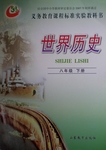题目内容
You wouldn’t be feeling regretful now, ___my advice then.
A. if you took B. had you taken C. if you would have taken D. should you take

 探究与巩固河南科学技术出版社系列答案
探究与巩固河南科学技术出版社系列答案通读下面短文,掌握其大意,然后在各题所给的A,B,C,D四个选项中,选出一个最佳答案。
When I entered Berkeley, I hoped to earn a scholarship.Having been a Straight-A student,I believed I could 36 tough subjects and really learn something. One such course was World Literature given by Professor Jayne.I was extremely interested in the ideas he 37 in class.
When I took the first exam,I was 38 to find a 77,C-plus, on my test paper, 39 English was my best subject,I went to Professor Jayne, who listened to my arguments but remained 40.
I decided to try harder, although I didn’t know what that 41 because school had always been easy for me.I read the books more carefully, but got another 77. Again,I 42 with Professor Jayne.Again,he listened patiently but wouldn’t change his 43.
One more test before the final exam.One more 44 to improve my grade.So I redoubled my efforts and for the first time 45 the meaning of the word "thorough”. But my 46 did no good and everything 47 as before.
The last hurdle (障碍) was the final.No matter what 48 I got, it wouldn’t cancel three C-pluses.I might as well kiss the 49 goodbye.
I stopped working hard.I felt I knew the course material as well as I ever would.The night before the final,I even 50 myself to a movie.The next day I decided for once I'd have 51 with a test.
A week later, I was surprised to find I got an A.I hurried into Professor Jayne's office. He 52 to be expecting me.“If I gave you the As you 53,you wouldn’t continue to work as hard.
I stared at him,54 that his analysis and strategy were correct. I had worked my head 55, as I had never done before.
I was speechless when my course grade arrived:A-Plus.It was the only A-plus given.The next year I received my scholarship.I've always remembered Professor Jayne’s lesson:you alone must set your own standard of excellence.
| 【小题1】 |
|
| 【小题2】 |
|
| 【小题3】 |
|
| 【小题4】 |
|
| 【小题5】 |
|
| 【小题6】 |
|
| 【小题7】 |
|
| 【小题8】 |
|
| 【小题9】 |
|
| 【小题10】 |
|
| 【小题11】 |
|
| 【小题12】 |
|
| 【小题13】 |
|
| 【小题14】 |
|
| 【小题15】 |
|
| 【小题16】 |
|
| 【小题17】 |
|
| 【小题18】 |
|
| 【小题19】 |
|
| 【小题20】 |
|